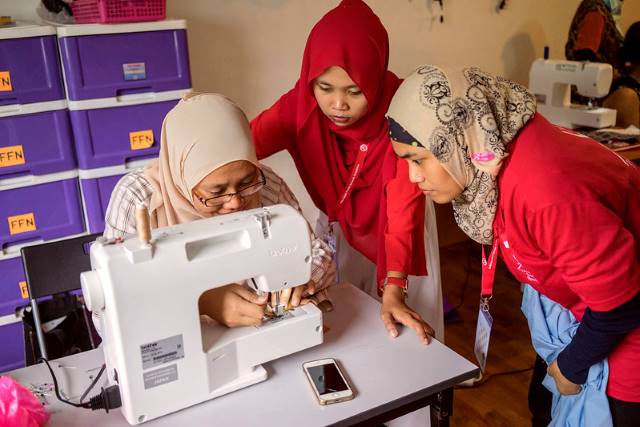Diving into Poverty Reduction in Malaysia
 Established in 1963, Malaysia is a small country located in Southeast Asia. Since earning its independence, Malaysia has made considerable strides in working to reduce the national poverty rate, to the point where the country is expected to gain high-income status between 2024 and 2028. With the help of the United Nations and other organizations, poverty reduction in Malaysia is slowly reaching rural areas, which still remain disproportionally plagued by poverty.
Established in 1963, Malaysia is a small country located in Southeast Asia. Since earning its independence, Malaysia has made considerable strides in working to reduce the national poverty rate, to the point where the country is expected to gain high-income status between 2024 and 2028. With the help of the United Nations and other organizations, poverty reduction in Malaysia is slowly reaching rural areas, which still remain disproportionally plagued by poverty.
A Flailing Poverty Line
Malaysia’s economic success cannot be explained without first noting the shift in an economic system previously dependent on agriculture to one built around commodity exportation. With about 40% of its labor force working in export activities, the country’s positive attitude toward trade and investment is responsible for the upwards trajectory in job growth and income expansion. Poverty reduction in Malaysia is apparent in its revision of the poverty line, increasing from $231.27 to $521.06 in 2019. That same year, however, rural households reported earning less than $2 per day.
Reports from government officials, which detail poverty reduction in Malaysia, ignore risks that many people face every day. The most impoverished 40% consist of rural villagers, migrant workers and refugees. These people are often left out of official poverty figures and lack a social safety net. Moreover, the dramatic economic growth seen in recent years is not accurately reflected in the poverty line, which is largely inconsistent with the current income levels of Malaysians. In his report, Professor Philip Alston explains that the impoverished have benefitted in gaining universal access to basic utilities. However, things like medical care and education are widely unattainable.
In areas such as Pulau Indah, an island not far from the capital Kuala Lumpur, many citizens live alongside heaps of garbage consisting of discarded plastic waste from Western countries. Here, sanitary living conditions are hard to come by. Education levels and medical needs prohibit people from building a life elsewhere. Most are even employed at illegal factories working to burn the waste that surrounds them. This leaves them in an inescapable cycle of poverty.
Villages Struggling to Stay Afloat
Problems are exacerbated in rural areas where the distance from hospitals, schools and jobs prevents residents from obtaining help. In water villages, which are clusters of homes sitting atop the water’s surface, the communities are subject to pollution and dangerous living conditions. While poverty reduction in Malaysia targets floating villages, providing them with basic necessities is still a hurdle. Access to clean water is a major problem as towns have no way of installing sewer systems. Even safe methods of electricity for heat or cooking are unaffordable. Thus, people resort to illegally extending power lines, risking engulfing entire villages into flames.
Casting a Safety Net
The United Nations Environment Programme (UNEP) is using an innovative strategy to aid poverty reduction in Malaysia. True to its mission of caring for the environment by improving people’s quality of life, UNEP sponsored a pilot project aimed at providing sewage treatment tanks to homes and schools in floating villages. This is major for a region like Sabah, which has 10,185 floating homes. These efforts are helping nearly 50,000 people gain access to sanitary living conditions. As part of a 36-month-long project, UNEP hopes to install 200 more treatment tanks in another village. Additionally, UNEP is encouraging the establishment of a facility where local people can work to produce the tanks themselves.
A business known as Hive Bulk Foods has also made considerable efforts at drawing attention to the waste issues in Malaysia and the impact of waste on impoverished communities. Founded by Claire Sancelot, The Hive encourages sustainable living and works with local farmers to source its ingredients. It operates as one of the only no-waste stores in Kuala Lumpur.
This push toward empowering rural communities to help eliminate poverty is apparent in the Malaysian government’s work as well. Legislation such as the 12th Malaysian Plan is based around promoting economic growth and poverty reform. Key policy measures that include providing help for undocumented citizens and re-evaluating the poverty line would ensure that poverty levels continue their downward trend for good.
– Nicole Yaroslavsky
Photo: Flickr
